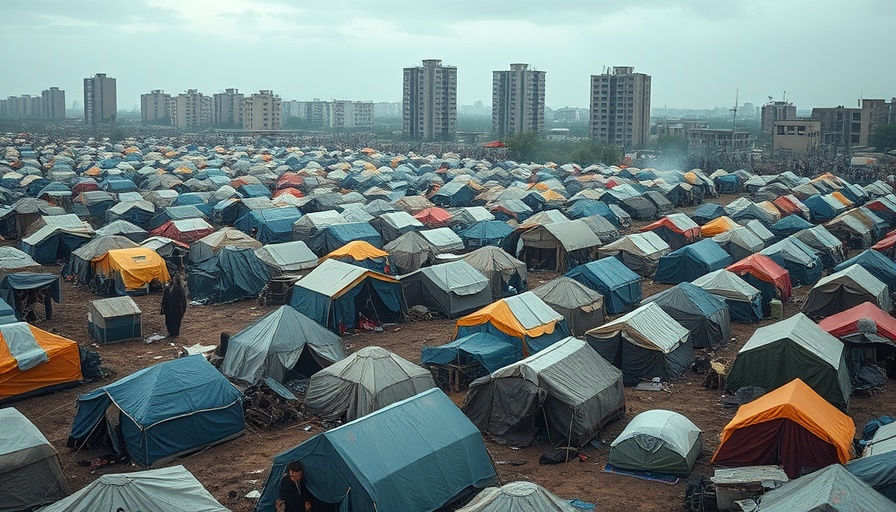
Gaza Crisis Escalates: A Proposal with Dire Consequences
The ongoing conflict in Gaza has taken a new, troubling turn as plans emerge from Israel’s defense ministry to relocate a large portion of the Palestinian population into a small, devastated enclave in the south. This proposal could put the latest peace negotiations between Israel and Hamas at serious risk. Intended as a measure to control the civilian population, legal experts indicate that such an action could amount to a violation of international law, effectively rendering it an act of ethnic cleansing.
Understanding the Proposed Plan
According to reports, the scheme involves forcibly moving nearly two million Palestinians into Rafah, a heavily affected area near the Gaza-Egypt border. Historical context suggests that Gaza has been a focal point of tension for years, with previous plans aimed at displacement drawing considerable international scrutiny. The prospect of confining families to a small region below international recognition raises alarm among human rights activists who fear that such strategies could cause significant harm to civilians.
International Response: A Divided Perspective
Responses from the global community have ranged widely. Some nations strongly condemn Israel’s proposed actions, equating them to past injustices endured by various marginalized groups worldwide. Conversely, supporters of the plan argue that it is necessary for national security. With such contrasting views, the international discourse surrounding Gaza remains polarized, requiring careful navigation in future dialogues.
Current Political Climate and Its Implications
The political landscape in the region complicates the situation even further. With ongoing evaluations of both military and humanitarian considerations, the urgency for a truce becomes palpable. However, plans to enforce such widespread relocation could provoke violent resistance and undermine any fragile negotiations that exist. The path forward hinges on both Israel’s military strategy and Hamas’s responses, which will likely influence the broader Middle Eastern geopolitical dynamics.
Humanitarian Impact: The Lives Affected
This proposed plan doesn’t just bear political implications; it threatens the lives of real people. Many families have already endured trauma from past conflicts. Forcing them into a constricted space with inadequate resources raises daunting questions about health, safety, and social stability. The psychological toll on these populations, especially children, cannot be understated. Observers worry that such measures would only deepen existing traumas.
Legal Perspectives: Violation of International Norms
Legal experts argue that the proposed displacement constitutes a breach of international law, specifically regarding the protection of civilian populations during conflicts. Under the Geneva Conventions, forcing civilians out of their homes with no right to return could be classified as a war crime. As discussions on the plan proliferate, international watchdog organizations are calling for accountability and transparency from Israeli officials.
Future of Peace Negotiations: A Fragile State
As the prospect of peace negotiations hangs by a thread, the implications of Israel’s proposal create a challenging environment for diplomacy. Should the international community fail to intervene decisively, ongoing efforts for reconciliation could be irrevocably damaged. Both sides must recognize that a sustainable resolution requires not just military solutions, but compassion for humanitarian concerns.
Conclusion: The Urgent Call for Action
The outcome of the proposed plan to relocate Palestinians offers serious consequences for all parties involved. The focus must shift towards finding peaceful resolutions that respect human dignity and uphold international law. As global observers watch closely, the next steps taken could either destabilize the region further or lead toward a more hopeful dialogue.
 Add Row
Add Row  Add
Add 




 Add Row
Add Row  Add
Add 

Write A Comment